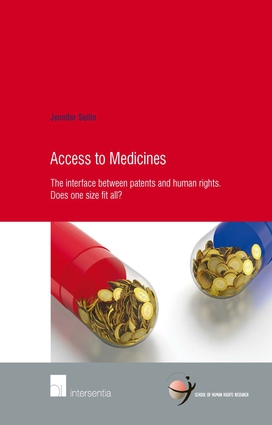Overview
Millions of people worldwide lack adequate access to medicines, particularly in developing countries where resources are scarce, with devastating human, social, and economic consequences. The example of HIV/AIDS - for which treatment has advanced so significantly in the last decade that a diagnosis no longer necessarily brings with it a death sentence - highlights the importance of ensuring that essential medicines are affordable and accessible to all. This book focuses on one aspect of access to medicines: the affordability of essential medicines and the connection to human rights and patents. The argument often made is that patent protection for medicines results in higher prices which negatively impacts access. Patients having no access - or inadequate access - to affordable medicines endangers the full realization of human rights, particularly the right to health. The book investigates this issue from a legal perspective, taking both an international and a domestic angle. It examines the interface of access to affordable medicines and patent protection from the perspective of international human rights law and the Agreement on Trade-Related Aspects of Intellectual Property Rights (TRIPS) within the framework of the World Trade Organization. The essential question posed is whether access to medicines and patent protection conflict or coexist. The discussion is deepened by including a developing country approach with three country studies (South Africa, India, and Uganda). This approach aims to provide concrete insight into whether these countries recognize and acknowledge the interplay between patents and human rights with respect to access to medicines. Second, these studies examine whether TRIPS leaves sufficient freedom for (developing) States to adopt a patent system suited to their domestic needs, enabling them to strike a fair balance between access to medicines and patent protection for medicines. In other words: does one size fit all? The book is targeted at both academics and human rights practitioners, including government officials, human rights advocates, and NGOs. It illustrates that the normative force of human rights in combination with social movement can provide a powerful tool for prioritizing the health needs of the global poor. (Series: School of Human Rights Research - Vol. 64) [Subject: International Law, Human Rights Law, Patent Law, Pharmaceutical Law, Medical Law]

